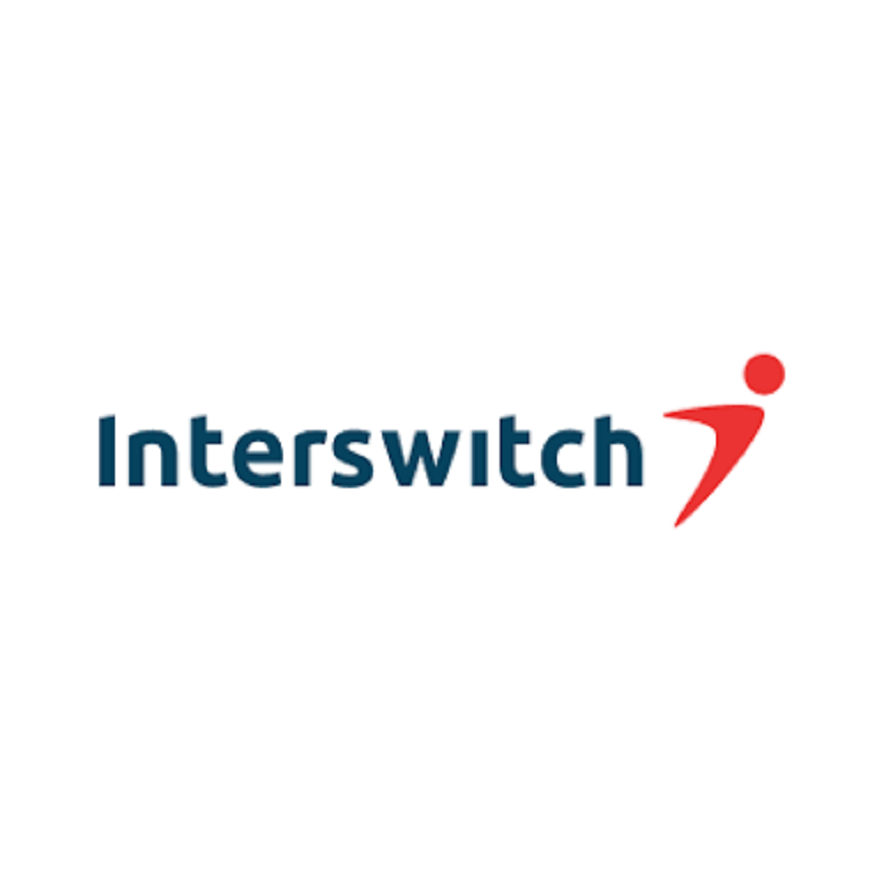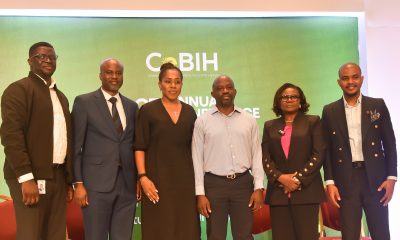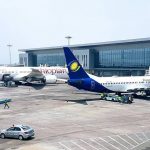Technology
Osinbajo Advocates Closing Entrepreneurial Gap with Technology, Innovation
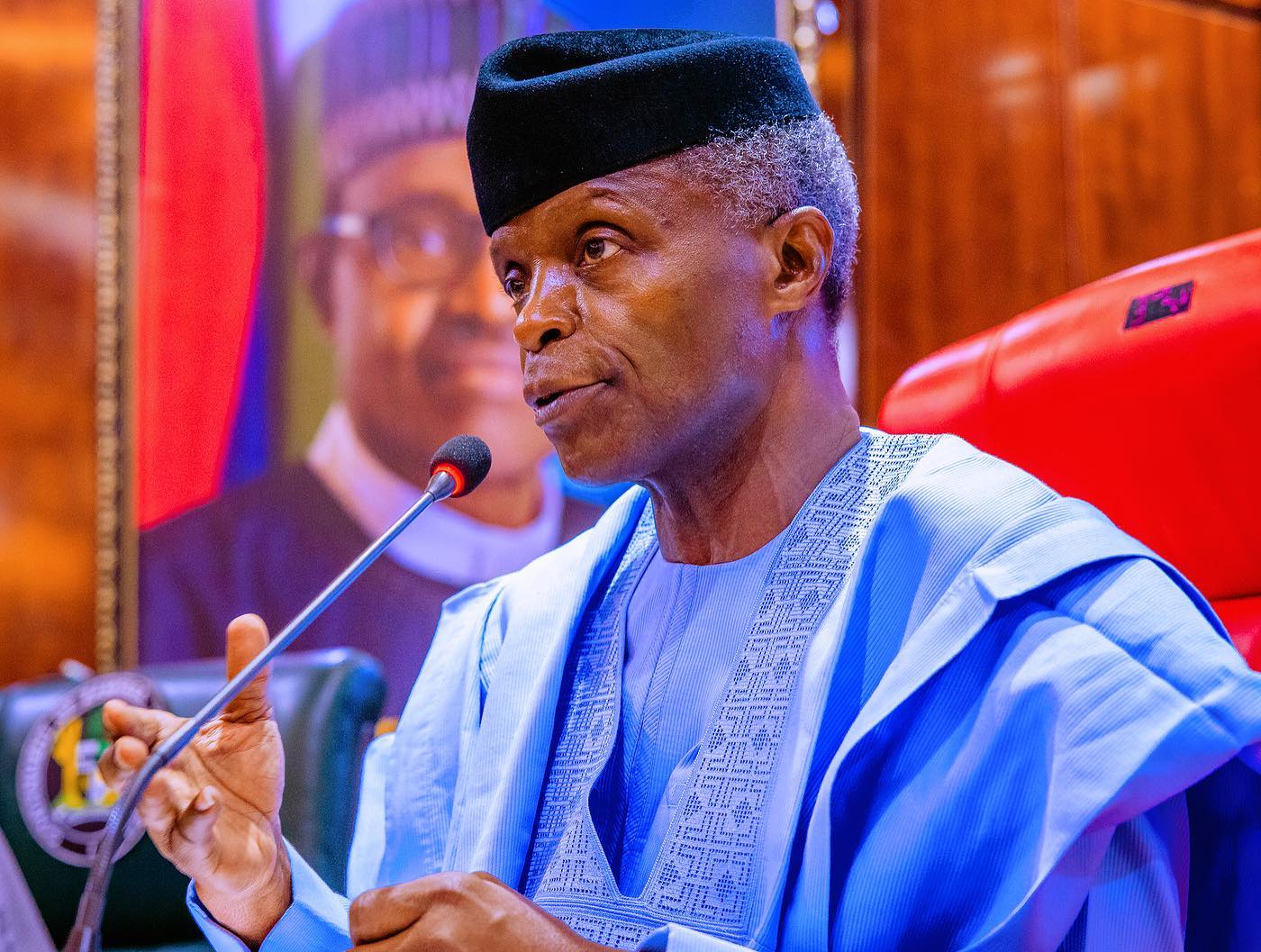
By Adedapo Adesanya
Nigeria’s Vice President, Mr Yemi Osinbajo, has reiterated the need to close the entrepreneurial gap with the rapid growth of innovation and technology recorded over the years globally.
This was the view of the Vice President in a pre-recorded speech at a weekend ceremony in Lagos to mark the 20th anniversary of Interswitch, a leading fintech company in Nigeria and Africa.
He said there are even more exciting new frontiers to be explored and harnessed by Nigeria’s talented and enterprising young entrepreneurs.
Speaking at the ceremony Saturday evening, Mr Osinbajo noted that “as innovation and technology open exciting new frontiers in medicine and healthcare, we can rest assured that Nigeria will not lag behind.”
Noting that “innovative disruptions thrive on natural and human occasioned gaps within the system,” the VP added that many of such are in Africa.
According to the Vice President, “this is why our continent is undoubtedly the next and possibly the last frontier.”
“All across the continent, there are yawning gaps waiting to be plugged by innovative ideas and entrepreneurial efforts. It is exciting to see how sprightly young people, particularly, are rising to the challenge and the accelerated pace of creative disruptions in their wake,” he added.
Speaking further on the incredible talents and potential of Nigeria and Africa’s young people to drive socio-economic growth, the VP stated that, “in 2021 alone, African tech startups raised over $ 4 billion in funding, with over 564 startups across the continent solving critical problems in almost every sector.
“Within the next two decades, Africa’s workforce will be the largest in the world. They are skilled, and they are coming. As a result, more innovative disruptors will yet emerge to plug more of these gaps.”
Mr Osinbajo further said the President Buhari administration would continue to provide the enabling environment for young entrepreneurs and businesses to thrive.
“Our responsibility as a government has been to meet them halfway and perhaps outpace them with corresponding creativity in the provision of forward-thinking regulatory frameworks and adequate infrastructure. I can assure you that no effort is being spared in this regard.
“Nevertheless, there is still so much to be done; and a lot of ground to cover. I have no doubt, though, that we are up to the task,” he emphasised.
The VP observed that “it is through innovative disruptions that humans have managed to resolve their most complex challenges and stay ahead of the survival curve.
“Oftentimes, these ideas are championed by mavericks who find better, safer, and more cost-effective ways for us to live, do business, and govern; slight tweaks that improve our overall experience, and complete overhauls that lead us into new paths altogether.”
On what he described as ‘two rigorous decades of accelerated change,’ since Interswitch was founded 20 years ago, he noted that it was “incredible that what began as a novel idea to facilitate seamless payments across Africa has in barely two decades become something of an icon of technology and innovation literally pioneering Africa’s ongoing Fintech revolution.”
The Vice President described Interswitch “as a leading company at the forefront of agency banking and financial inclusion in Nigeria,” which “also operates the largest and fastest growing private sector-led domestic card scheme in the world.”
He further noted, “It is, therefore, a testament to the quality of the talent and courage of the founders of Interswitch that they saw the future clearly and predicted the potential of a nascent technology for scale and application.”
Situating Interswitch further in the innovative disruption that has since transformed Nigeria’s fintech space, Mr Osinbajo recalled that “in 2002, only 569 million people were connected to the Internet worldwide. Nigeria, as a whole, had less than 200,000 people with Internet access. In fact, PayPal, one of the pioneering electronic payment companies in the internet age, was barely four years old at the time.”
Since then, Africa’s domestic e-payments market has grown by 20 per cent annually in the last two years and is projected to hit around $40 billion in 2025, the Vice President said.
“It is estimated that around half of all future digital payments will come from Nigeria, Egypt, South Africa, Ghana, and Kenya, with Nigeria experiencing the fastest growth at 35 per cent per year. A lot of this is, of course, owed to the trailblazing efforts of Interswitch. Your rapid expansion, already serving customers in over 23 African Markets, is an ample demonstration of growing vitality.”
Technology
Nigeria to Buy Two New Communication Satellites to Drive Digital Growth
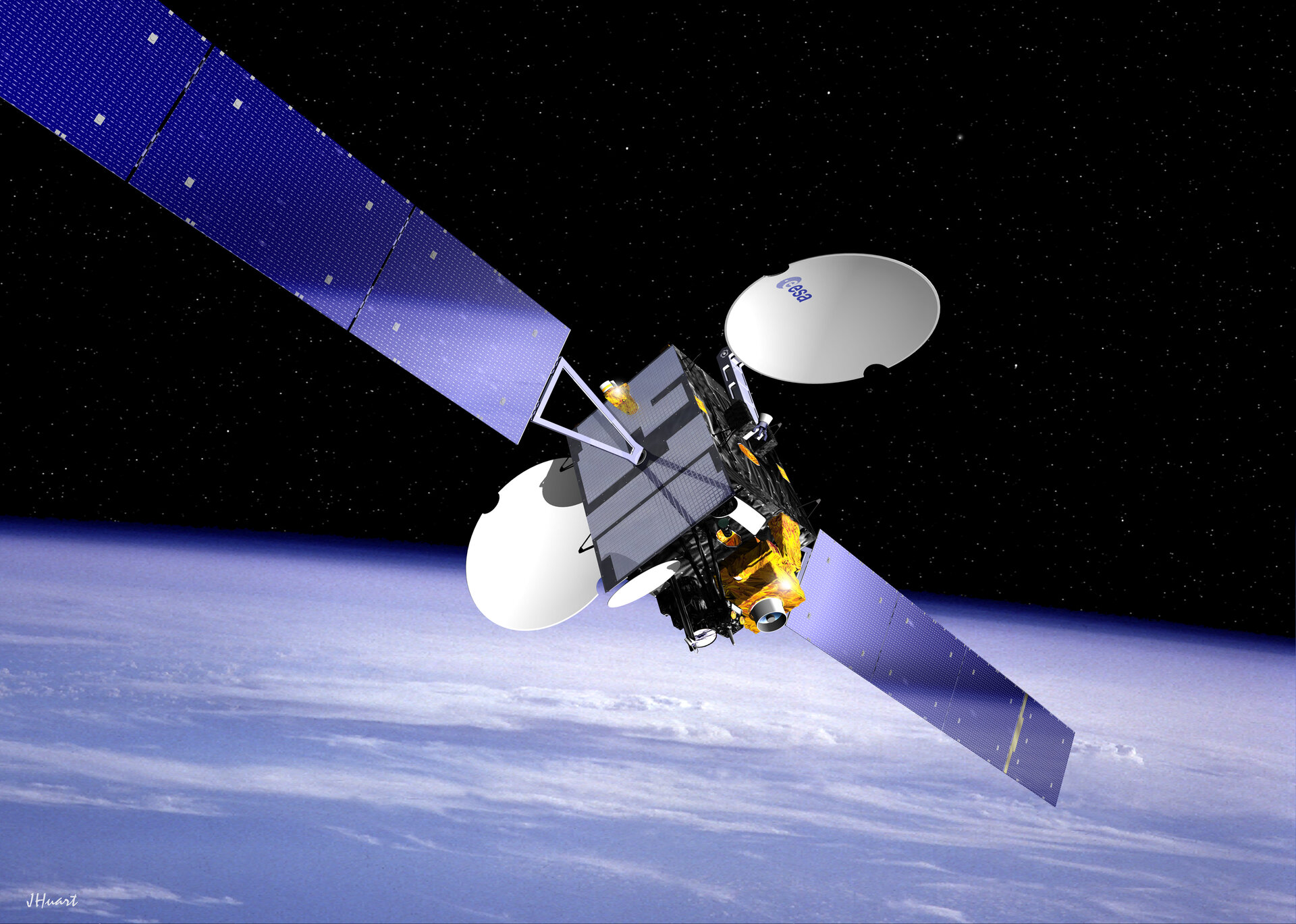
By Adedapo Adesanya
Nigeria will purchase to new communication satellites to boost Nigeria’s digital infrastructure as part of efforts to achieve President Bola Tinubu’s plan to grow the economy to $1 trillion.
The Minister of Communications and Digital Economy, Mr Bosun Tijani, disclosed this on Wednesday in Abuja at a press conference to mark Global Privacy Day 2026, organised by the Nigerian Data Protection Commission (NPDC).
Mr Tijani said the approval marked a significant shift in Nigeria’s digital strategy, noting that the country currently stands out in West Africa for lacking active communication satellites, a gap the new assets are expected to address.
“As you know, Mr President has been very clear about his ambition to build a $1 trillion economy, and digital technology is central to achieving that vision,” adding that, “The President has now approved that we should procure two new satellites. Nigeria today is the only country in West Africa with non-communication satellites. And we have been given the go-ahead to procure two new ones, ensuring that we can use that satellite to connect.”
He also said progress had been made on the Federal Government’s flagship 90,000-kilometre fibre optic backbone project, which is aimed at expanding broadband access across the country. According to the minister, about 60 per cent of the fibre project has been completed, while funding for the remaining work has already been secured.
“The 90,000 kilometres fibre optic project is not a dream. About 60 per cent of the work has already been completed, and the funding for the project is secure. As we bring more Nigerians online, connectivity without protection is incomplete. Privacy is the foundation of trust, safety, and sustainability in the digital world.”
“The success of Nigeria’s digital economy will depend not just on infrastructure and talent, but on trust, and the NDPC remains central to building that trust,” the minister said.
Mr Tijani said the Tinubu administration was positioning digital technology as a key driver of inclusive growth, improved public service delivery, and long-term economic expansion, adding that investments were also being channelled into digital skills, rural connectivity, and institutional reforms.
He stressed that the expansion of connectivity must be matched with stronger data protection, especially as Nigeria’s young and digitally active population continues to grow.
Recall that Nigerian Communications Commission (NCC) recently granted licenses to three global internet service providers – Amazon’s Project Kuiper, BeetleSat-1, and and Germany-based Satelio IoT Services – as part of efforts to strengthen internet connectivity via satellite and to boost competition among existing internet service providers in the country.
Technology
DataPro Predicts Surge in Individual Claims, Constitutional Privacy Actions

By Dipo Olowookere
In 2026, there should be a surge in individual claims and constitutional privacy actions, a leading Data Protection Compliance Organisation (DPCO) in Nigeria, DataPro, has projected.
In a statement signed by its Head of Emerging Services, Ademikun Adeseyoju, the company noted that this means organisations must remain “litigation ready” by preserving processing records and strengthening internal controls.
In the disclosure to prepare for this year’s Privacy Week themed Privacy in the Age of Emerging Technologies: Trust, Ethics, and Innovation, it noted that 2026 would also be defined by board and executive ownership, as privacy will no longer be an IT-only concern but a standing governance issue requiring regular risk reports and dedicated budgets.
“DataPro anticipates intensity on sector-specific enforcement, with the NDPC (Nigeria Data Protection Commission) focusing on high-risk industries like fintech, healthcare, etc,” a part of the statement made available to Business Post on Wednesday said.
Giving a review of key milestones from the 2025 ecosystem, DataPro said the NDPC moved decisively into active enforcement, publicly naming non-compliant entities, particularly in the financial services sector.
It also said the year witnessed landmark court rulings, affirming that transparency in personal data handling is a constitutionally protected right, as courts awarded significant damages to data subjects for privacy breaches, signalling that organisational size no longer shields against accountability.
The firm noted that regulatory settlements with multinational technology firms have set a high bar for behavioural advertising and data processing standards in Nigeria.
In the cybersecurity landscape, the year under review experienced an unprecedented surge in cyber threats, as attackers shifted their focus from technical exploits to identity-driven campaigns, targeting valid credentials with high precision.
“This identity-centric threat environment has made robust access management a non-negotiable requirement for corporate resilience,” it stressed.
As for the 2026 Privacy Week, DataPro has lined up activities, with launch of the Privacy Pulse A year-in-review of Nigeria’s Data Protection Ecosystem on Thursday, January 29.
The next day, a webinar tagged Privacy Pulse to train attendees on the new mandatory bi-annual in-house audits and DPO certification requirements will hold and next Monday, there is an interactive quiz designed to test organizational response to identity-driven cyber campaigns.
A social media session answering complex privacy questions via concise 30-second videos is slated for Tuesday, February 3, and the next day, it is for a social media showcase where winners will be selected for their insights on building Trust, maintaining Ethics in AI, and fostering Innovation under the NDPA.
Technology
MTN Nigeria Suffers 9,218 Fibre Cuts in 2025
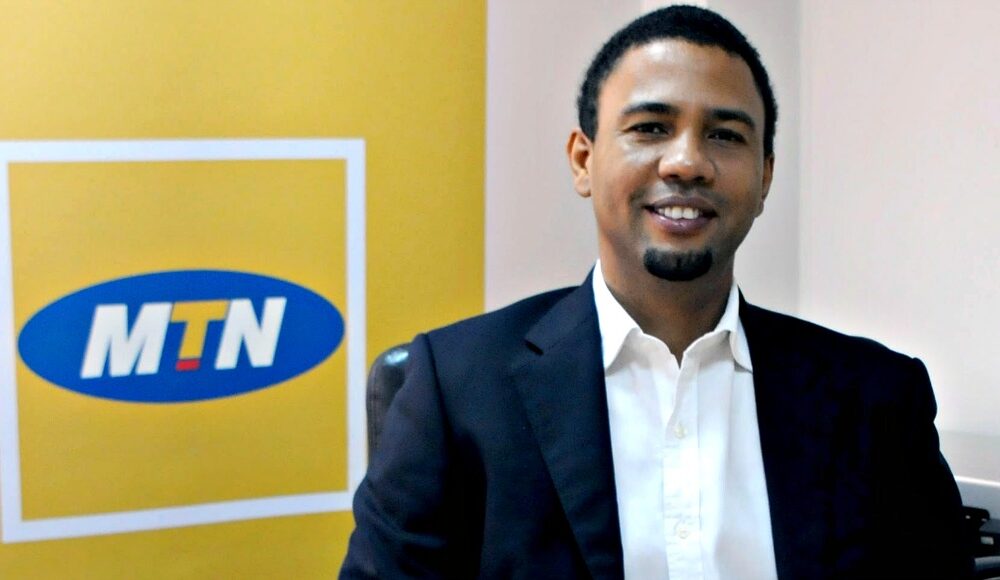
By Adedapo Adesanya
MTN Nigeria has revealed that it experienced 9,218 fibre cuts in 2025, causing widespread network disruptions across the country.
The telecommunications giant also reported that 211 sites were affected by theft and vandalism as of November 30, 2025, impacting essential services relied upon by customers daily.
The company recorded a total of 1,624,263 customer complaints, all of which were resolved across various service channels during the year. Despite these challenges, MTN reached 85 million subscribers by September 2025.
The chief executive of the telco, Mr Karl Toriola, made these revelations in his latest post on LinkedIn, acknowledging the company’s responsibility for network performance and its efforts to improve the customer experience.
He stated that the services fell short of customers’ expectations and clarified that some of these gaps were shaped by real operational challenges such as fibre cuts, theft, and vandalism.
“Their impact is felt directly by customers and reflected in what they tell us. We take responsibility for the signals we receive and for how we respond to the realities that shape the customer experience on our network,” he said.
Regardless, Mr Toriola added that, “There is progress to be proud of. And we clearly still have work to do.”
“We are not where we want to be yet, but our commitment to putting the customer at the centre of everything we do remains constant.”
As MTN prepares to celebrate its 25th anniversary in 2026, Mr Toriola reaffirmed the company’s dedication to listening to customers, responding quickly to issues, and driving consistent service improvements.
Some other milestones announced include addressing 1,624,263 customer complaints across all communication channels as well as receiving best network recognition from Ookla, getting back to profitability, and declaring interim dividends to shareholders.
The report comes in the wake of a February 2025 initiative by the Federal Ministry of Works and the Federal Ministry of Communications, Innovation, and Digital Economy, which established a joint standing committee on the protection of fibre optic cables in Nigeria.
-

 Feature/OPED6 years ago
Feature/OPED6 years agoDavos was Different this year
-
Travel/Tourism9 years ago
Lagos Seals Western Lodge Hotel In Ikorodu
-

 Showbiz3 years ago
Showbiz3 years agoEstranged Lover Releases Videos of Empress Njamah Bathing
-

 Banking8 years ago
Banking8 years agoSort Codes of GTBank Branches in Nigeria
-

 Economy3 years ago
Economy3 years agoSubsidy Removal: CNG at N130 Per Litre Cheaper Than Petrol—IPMAN
-

 Banking3 years ago
Banking3 years agoSort Codes of UBA Branches in Nigeria
-

 Banking3 years ago
Banking3 years agoFirst Bank Announces Planned Downtime
-

 Sports3 years ago
Sports3 years agoHighest Paid Nigerian Footballer – How Much Do Nigerian Footballers Earn


